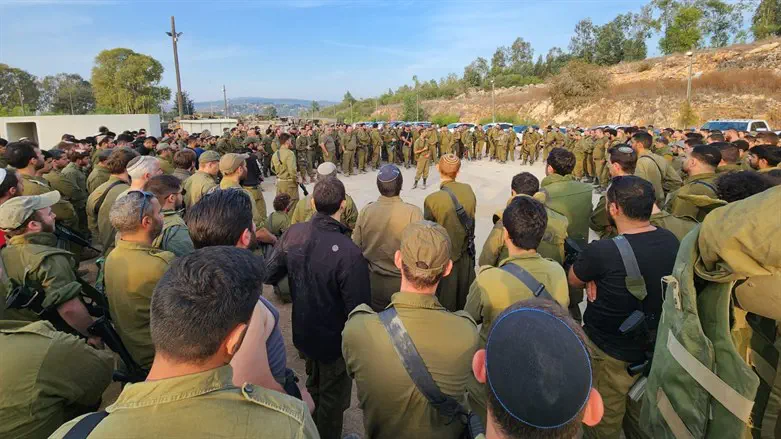
After eight months at war, the IDF reserve forces are seen by many as a reflection of the entire state - in more ways than one.
"Reservists expected enlistment and dedication, but are also feeling inequality and deep disparities in the sacrifices being made,'' Calcalist reported. ''Some soldiers feel that they are being taken as suckers, while others have found loopholes and used connections to make a significant profit.''
Lior is a reservist who is supposed to be relieved from operational deployment in the north in June, after nearly 200 days of active service. He has paid a personal and economic toll for his service in his civilian life. "A lot of people go to after-work gigs just to stay afloat economically," he explains, "Employers lose patience, especially for independent workers who can no longer absorb any more economic impact. It's tough. And when you tell people you're in the reserves, they tell you: ''What, you're still doing that? Is that still happening? Isn’t the mess over yet?'' You're no longer the hero going into battle, but the sucker they keep grinding down more and more. No one really knows why we're here and what we're doing and where this is going. There is a of uncertainty. If there's a war, then let's fight, and if not — decide what's happening."
Soldiers who were drafted under an "Order 8," allowing indefinite military service, are entitled to full payment from the state for the service, regardless of its length. At the same time, they continue to work and earn as usual, or almost as usual.
Such soldiers can receive a double salary, while reservists like Lior struggle to maintain their civilian source of income. Moreover, in some cases, the "part-time" reservists receive higher compensation from the state because they are supposedly serving continuously since October 7, whether actively fighting or not. Reservists receive pay only for the days they actually fight.
The IDF is dealing with a manpower shortage, following the deaths of 631 soldiers in the war and the injury of more than 7,200 (as of April). The war itself is ongoing and even intensifying now, with three divisions operating in Gaza, after last month a single brigade was active there. The number of mobilized reservists has dropped from a peak of nearly 300,000 in October to several tens of thousands today.
The report states that the IDF claims they will impose internal sanctions on units that exceed the use of reserve days, and have already halved the number of reserve days given to civilian security squads in various towns, due to complaints about wasteful use of reserve days.

